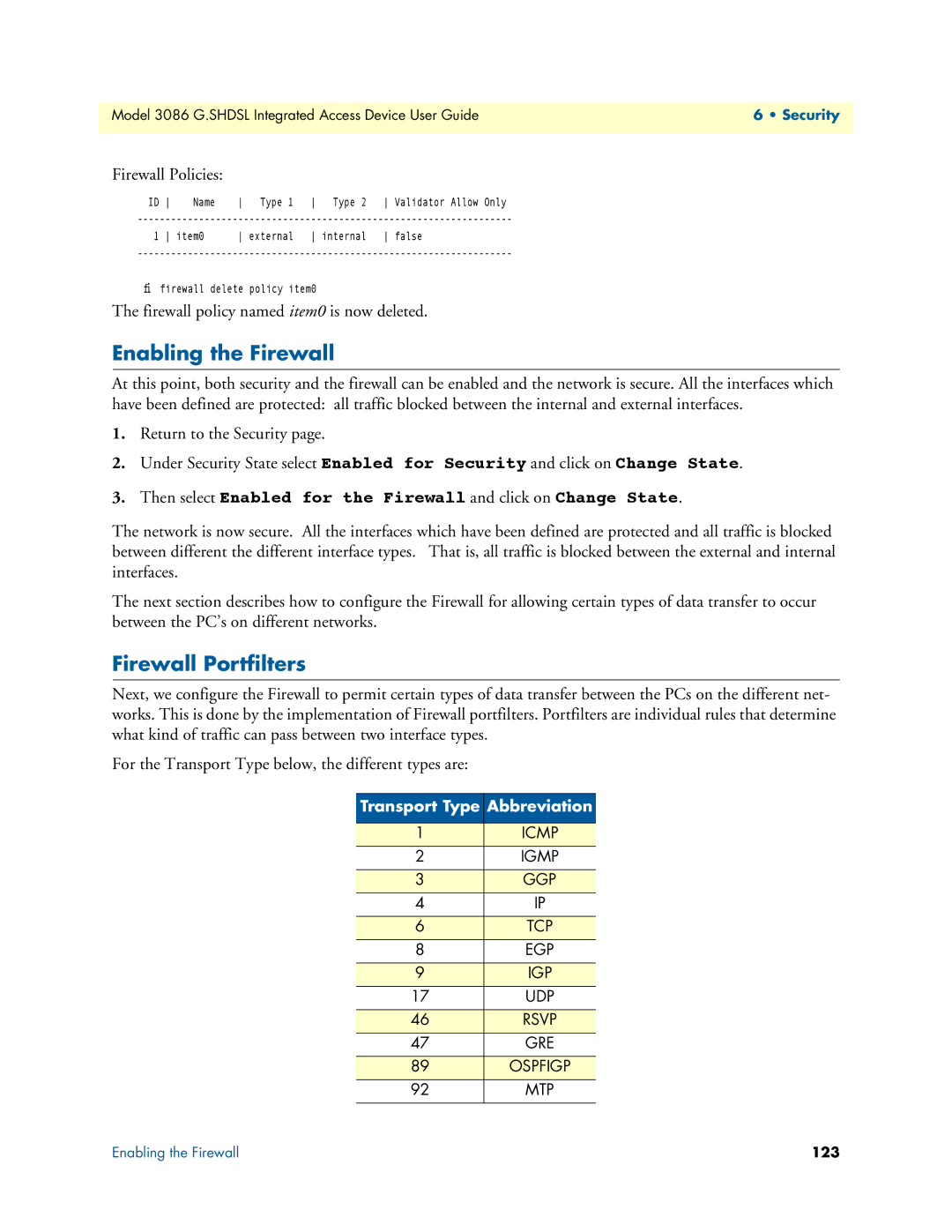
Model 3086 G.SHDSL Integrated Access Device User Guide6 • Security
Firewall Policies:
ID Name Type 1 Type 2 Validator Allow Only
1 item0 external internal false
fifirewall delete policy item0
The firewall policy named item0 is now deleted.
Enabling the Firewall
At this point, both security and the firewall can be enabled and the network is secure. All the interfaces which have been defined are protected: all traffic blocked between the internal and external interfaces.
1.Return to the Security page.
2.Under Security State select Enabled for Security and click on Change State.
3.Then select Enabled for the Firewall and click on Change State.
The network is now secure. All the interfaces which have been defined are protected and all traffic is blocked between different the different interface types. That is, all traffic is blocked between the external and internal interfaces.
The next section describes how to configure the Firewall for allowing certain types of data transfer to occur between the PC’s on different networks.
Firewall Portfilters
Next, we configure the Firewall to permit certain types of data transfer between the PCs on the different net- works. This is done by the implementation of Firewall portfilters. Portfilters are individual rules that determine what kind of traffic can pass between two interface types.
For the Transport Type below, the different types are:
Transport Type | Abbreviation |
|
|
1 | ICMP |
2 | IGMP |
|
|
3 | GGP |
4 | IP |
|
|
6 | TCP |
8 | EGP |
|
|
9 | IGP |
17 | UDP |
|
|
46 | RSVP |
47 | GRE |
|
|
89 | OSPFIGP |
92 | MTP |
|
|
Enabling the Firewall | 123 |
